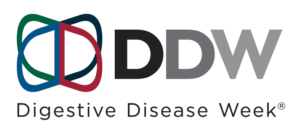WASHINGTON, D.C. (May 9, 2024) — Colorectal cancer incidence has steadily increased among younger people in the U.S. over the last two decades, with the youngest seeing the most dramatic jumps, according to a study scheduled for presentation at Digestive Disease Week® (DDW) 2024. Between 1999 and 2020, the rate of colorectal cancers grew 500% among children ages 10 to 14, 333% among teens aged 15 to 19, and 185% among young adults ages 20 to 24, researchers said.
“Colorectal cancer is no longer considered just a disease of the elderly population,” said lead researcher Islam Mohamed, MD, an internal medicine resident physician at the University of Missouri-Kansas City. “It’s important that the public is aware of signs and symptoms of colorectal cancer.”
Risk factors include a family history of inflammatory bowel disease or colorectal cancer. Modifiable risk factors include obesity, tobacco use, alcohol consumption and dietary habits such as low fiber intake, consumption of processed meats or sugar-sweetened beverages and a high-fat diet. Sedentary lifestyle, the presence of bacteria that tend to cause tumors, antibiotic usage, and dietary additives are potential, but not firmly established, contributors to colorectal cancer risk.
Using data from the Centers for Disease Control Wonder Database, Mohamed’s team calculated trends in colorectal cancer rates for people ages 10 to 44 from 1999 to 2020.
The number of colorectal cancer cases among children and teens is not high enough to suggest widespread colonoscopy screening, but more tailored approaches should be considered, Mohamed said.
In 2020, only .6 children ages 10 to 14 per 100,000 population were diagnosed compared to .1 per 100,000 in 1999. Diagnoses in teens age 15 to 19 went from .3 to 1.3 per 100,000, and in young adults ages 20 to 24, cases rose from .7 to 2 per 100,000.
The most common symptoms for colorectal cancer identified in patients with early onset colorectal cancer were changes in bowel habits in terms of either constipation or diarrhea, abdominal pain, rectal bleeding and signs of iron deficiency anemia, Mohamed said.
Escalations were also found in the higher age brackets, with rates rising by 71% to 6.5 per 100,000 people in ages 30 to 34 and by 58% to 11.7 per 100,000 in ages 35 to 39 in 2020. While the 40-to-44 age group had a lower percentage increase of 37%, this group had the highest incidence rate, reaching 20 per 100,000 people in 2020.
DDW Presentation Details
Dr. Mohamed will present data from the study, “Evolving trends in colorectal cancer incidence among young patients under 45: A 22-year analysis of the Centers for Disease Control Wonder Database,” abstract Mo1149, on Monday, May 20, at 12:30 p.m. EDT. For more information about featured studies, as well as a schedule of availability for featured researchers, please visit www.ddw.org/press.
###
Digestive Disease Week® (DDW) is the largest international gathering of physicians, researchers and academics in the fields of gastroenterology, hepatology, endoscopy and gastrointestinal surgery. Jointly sponsored by the American Association for the Study of Liver Diseases (AASLD), the American Gastroenterological Association (AGA), the American Society for Gastrointestinal Endoscopy (ASGE) and the Society for Surgery of the Alimentary Tract (SSAT), DDW is an in-person and online meeting from May 18-21, 2024. The meeting showcases more than 5,600 abstracts and hundreds of lectures on the latest advances in GI research, medicine and technology. More information can be found at www.ddw.org.





